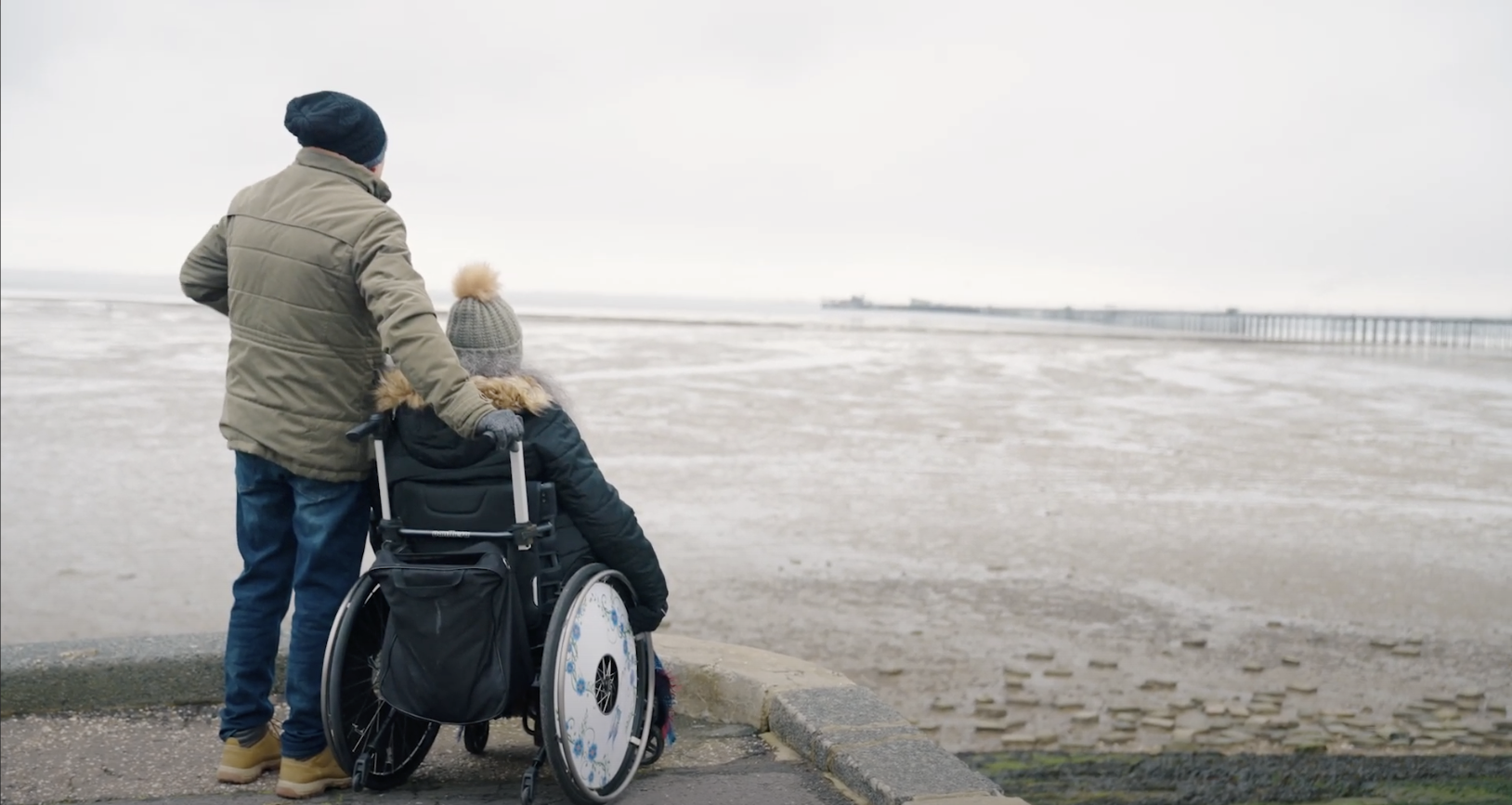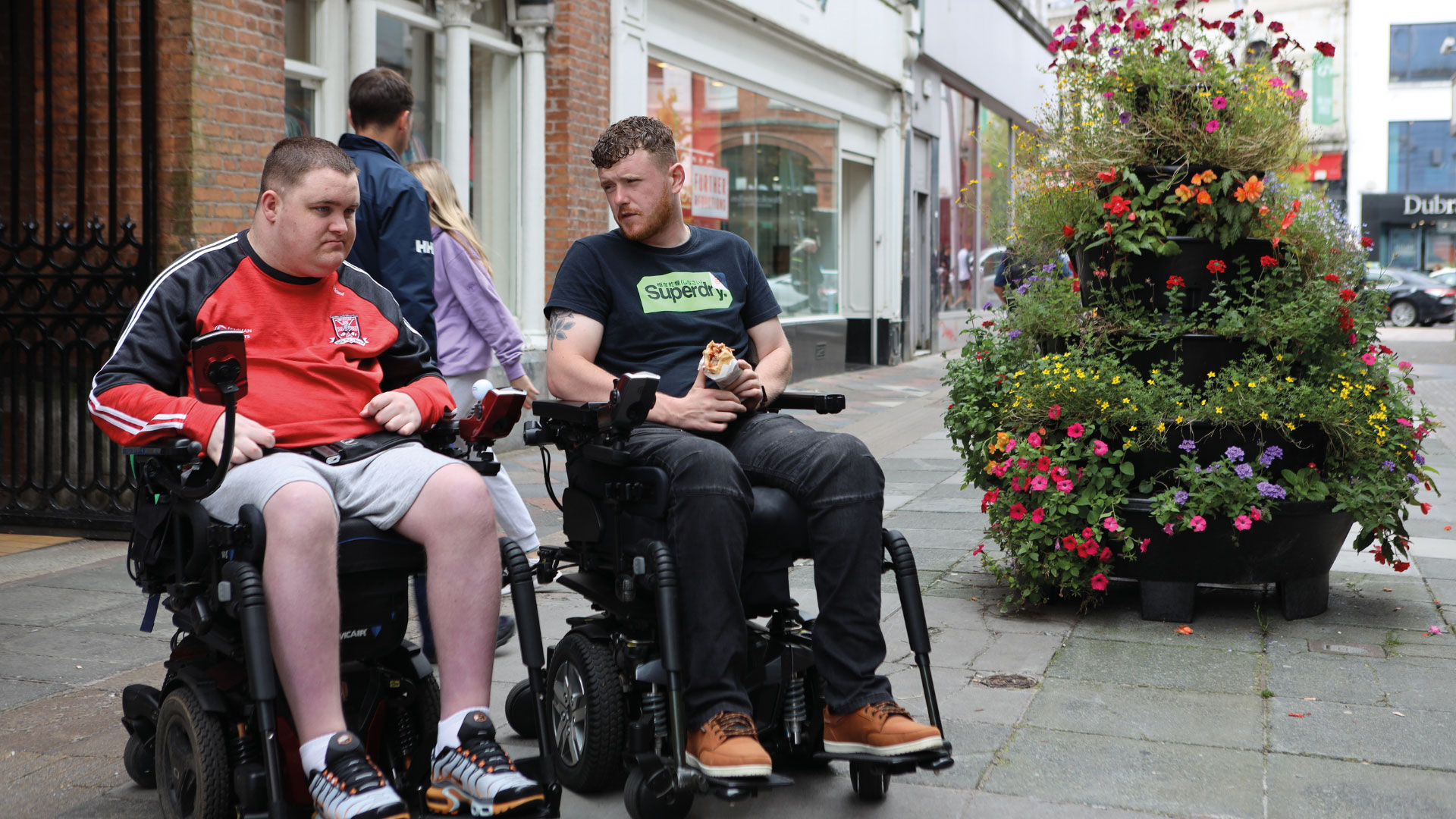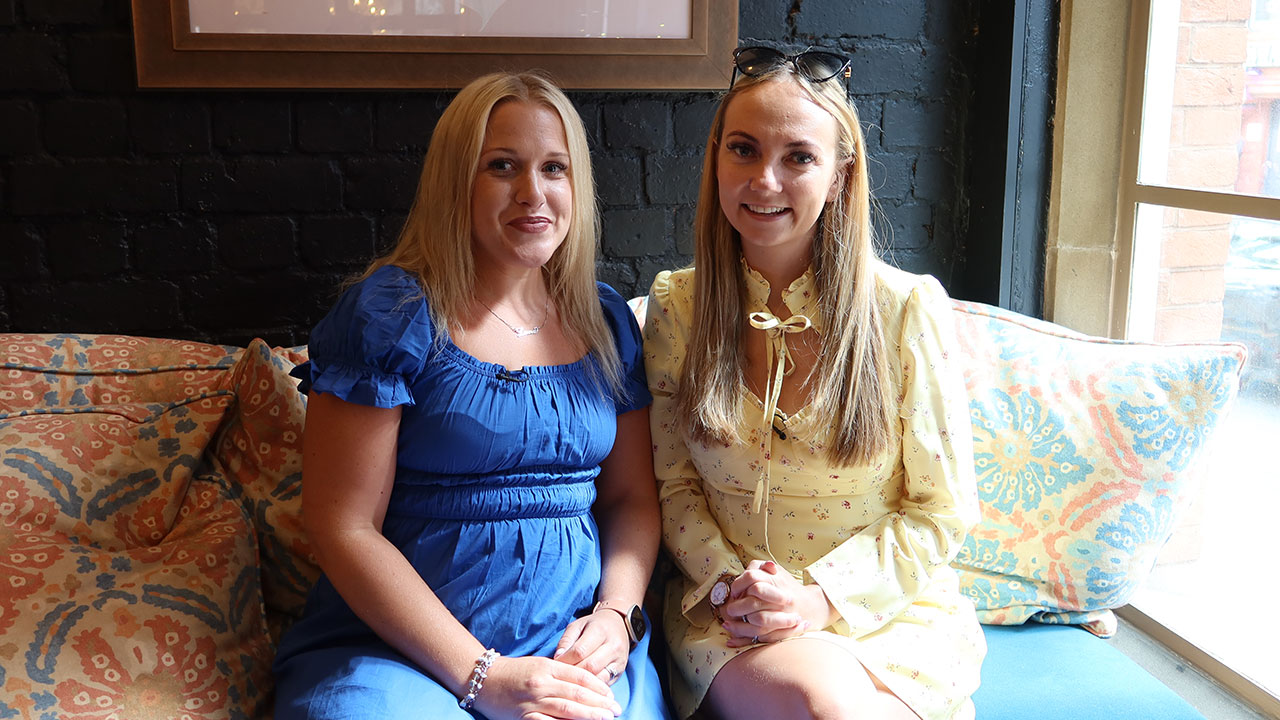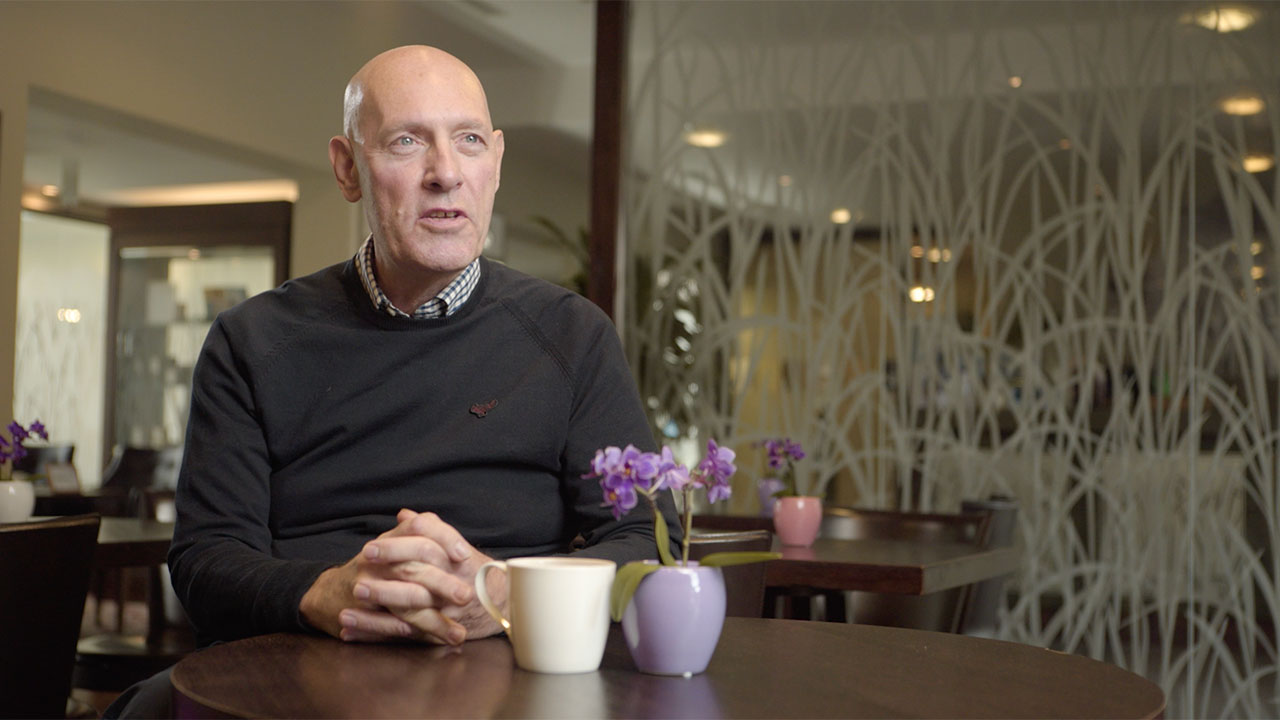The beginning of their journey
Nineteen years ago, Kim’s life took an unexpected turn when a spinal cord injury left her reliant on a wheelchair and facing the challenges of double incontinence. This marked the beginning of a journey filled with adaptation and resilience.
Fourteen years later, Kim received another life-altering diagnosis: early-onset Alzheimer’s. This new hurdle brought with it another set of challenges once again.
Due to the nature of her Alzheimer’s, she began to become fixated on her bowels, which resulted in visiting the toilet up to 20 times a day. Recognising the strain, it placed on their lives, Kim and Steve knew they needed a solution.
That was when Kim was introduced to Qufora IrriSedo MiniGo Flex.
When Kim’s diagnosis of Alzheimer’s came through – Steve began to reposition their journey together. They created a bucket list, including getting tattoos and attending burlesque shows. Through both the change and adventure, one constant remained: Kim’s love for music and dancing, a cherished outlet that stayed with her throughout life and brought joy to her no matter where she was on her journey.
Routine made an impact
Kim and Steve realised that their routine played an integral part in Kim’s Alzheimer’s; for example, they still go out in their van every Sunday and have an adventure together.
When Kim’s nurse introduced Qufora IrriSedo MiniGo Flex, she told them about the importance of routine regarding rectal irrigation – which made the MiniGo Flex a life-changing product for both Kim and Steve.
Like most patients who first come across rectal irrigation, Kim was a little apprehensive if this would work for her, but she was blown away by how simple it was to use and how much it has impacted her and her husband’s life.
Advice for your patients
Kim was previously a Colorectal Nurse Practitioner, so she has often spoken to patients who have experienced incontinence before experiencing it herself. With that being said, Kim wants to leave you with this one message for your patients:
“If anybody is in a similar situation to me, you’ve just got to give it go, you’ve really got to give it a go.”









